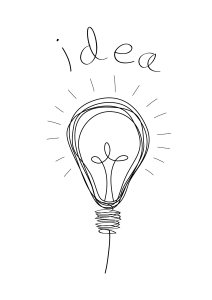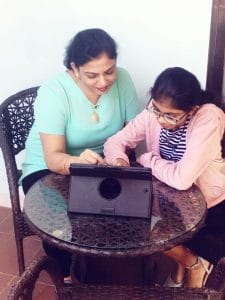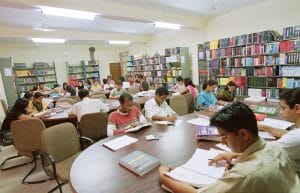Is the library profession going to be obsolete? Are librarians a dying breed? These questions have often been asked of me. Recently, I received a youtube video saying that librarianship is one of the dying careers and is not worth pursuing as a career. As I began to reflect on this, it got me thinking that if we describe a librarian role to be one, who hushes the students, controls the library space and has few or no visitors, is a room full of dusty books, all books locked in a cupboard with NO open access. Stamping books and manually using the card catalogue. Sure, such librarians will fail to exist, and definitely, there is no place for such librarians in the 21st century.
What kind of Librarians will exist now and in the future?
The kind of librarians that will exist will be multi-taskers, who are ready to evolve and modify their role to meet the school community’s needs. The librarian will look for opportunities to learn, grow and adapt to the changing needs of the school community. Schools will continue to have libraries because books form the basis of learning, no matter how many eBooks we have and the advancement in technology. Librarians will exist. Let’s analyze and look at what librarians do?
What do librarians do?
Librarians are specialists and specialize in these capacities.
- They purchase the best books that match the curriculum.
- They recommend databases to support student learning.
- They systematically maintain the collection of books called the library.
- They create, curate & maintain an eLibrary.
- They read voraciously.
- They help you identify stories that can support teachers by sharing titles and curating lists of relevant information and books that will help them successfully teach students.
- They can find books or information by digging into the web.
- They read aloud stories to children and fill their hearts and souls.
- They nurture readers with kindness and compassion; they are non-judgemental.
- They create an atmosphere in the library where reading and learning is pursued equitably and with good spirit.
- Librarians love technology; they will help you find credible information, teach you to cite it and support you in your research as a guide.
- They learn new technology tools to ensure they can participate and support students in creating media, infographics, eBooks, eMagazines, and podcasts to support student learning.
These librarians will exist and will continue to be in demand. In my opinion, being a librarian is one of the best roles in a school. You get to collaborate and co-teach with teachers, learn new skills, teach and learn with students, reach out to the parent community and finally nurture a learning atmosphere for all.
Why Change and Adapt?
In dynamic education organizations, every educator evolves using new pedagogical practices adapting and adopting new roles and responsibilities. Educators like teachers are often seen in multiple positions, supervisors, running school activities and/or taking on administrative roles. Similarly, librarians adapt and change to the school community’s needs, adopting new practices through professional development. Some librarians have the role of a specialist with a packed class schedule, while other librarians have a flexible schedule allowing them to take on other teaching duties in the school. As a librarian, if we adapt and change to meet the school’s needs, what is wrong? I wonder why librarians shy away from accepting and taking on new roles? Socrates said the secret of change is not fighting the old but building the new. And, we all know that change is inevitable. To meet the school’s needs, why not change, adapt and learn new skills to stay current and relevant when many talk about the librarian’s role as a dying breed. Why NOT?
What new roles are librarians adopting?
Schools have different priorities and different styles of functioning. Looking around the librarian tribe, I have found that many librarians have adopted additional roles & responsibilities based on their areas of interest and skill set. They have diversified their positions and have not given up their primary functional role as a librarian.
Some of the roles librarians have adopted into their librarianship are as follows:
- Leading and supporting social events at their school.
- Teaching English as a second language.
- Supporting students with learning difficulties or partnering with the special education team.
- Participating in community services programs.
- Adding an extra hand in administration duties in the school.
- Building or supporting programs related to Unesco’s sustainable goals.
- Teaming up with the technology team to deliver digital literacy programs.
- Teaming with enrichment programs.
- Partnering with the school’s social media team to share students successes.
- Librarians are working as team members with literacy coaches or reading specialists to deepen literacy skills.
- Librarians are also Extended Essay Coordinators.
- Librarians are teachers of different subjects: Theory of Knowledge, Language teachers and even Indian Studies.
This Forbes article made me think of my role as a jack of all trades and master of none, but librarians are masters and specialists in their library profession. Being a jack of other trades has helped me discover new strengths, nurtured my curious mind, learned new subjects, and built a unique skill set.
How do you adopt new roles?
So, how does a librarian go about adopting other roles? Firstly, I would build up courage and reach out to the supervisor with a growth mindset and a strong desire and interest in learning and growing. As you begin to explore, you will either fall in love with the new work or not; if not, then it’s time to try another area of interest. Nudge yourself to grow, read and learn.
99% of the time, it is fear of not trying that pulls one down. We often hear advice like – if you never try, you will never know. So, finally, LEAP and the NET will appear.





